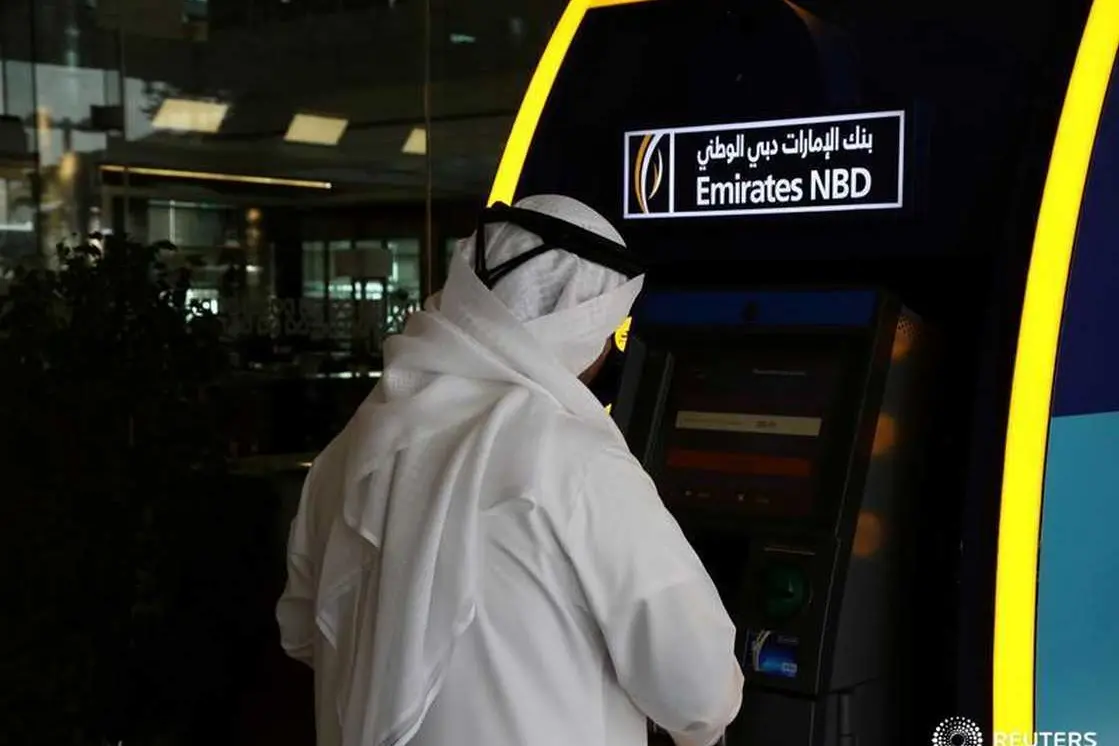PHOTO
Banks across the Gulf Cooperation Council (GCC) will have to embrace new technologies or considate to drive greater efficiencies, as funding costs rise, according to consultancy firm KPMG.
The firm's 'Shifting Horizons' report on the current state of the region's banking sector, which was published last Wednesday, found that despite overall net profit increasing by 6.7 percent in 2017, return on equity is lower and profit margins are under pressure as banks face higher funding costs and new accounting rules that are likely to increase risk pricing.
Omar Mahmoud, KPMG's head of financial services for the Middle East and South Asia region, told Zawya in a telephone interview on Sunday evening: "Margins have clearly been squeezed in the region last year, and we expect that to be the case again in 2018 given the fact that cost of funds are going up because liquidity has been tighter."
Mahmood said that, in the UAE in particular, some banks were embracing new technologies such as blockchain to make cross-border payments quicker and cheaper, while other banks were trying to introduce internet banking models for millennial customers that have lower overheads as they do not carry traditional branch networks.
He said that in recent years, "we've seen the banks go through the pretty vanilla cost-cutting phase" which has involved reducing headcount and looking at branch efficiency, so banks' cost-income ratios are already among the lowest in the world.
"Now, what we're seeing is more focus... on how we can improve efficiencies through making costs to deliver services to customers cheaper."
A $2 trillion industry
The ‘Shifting Horizons’ report, which monitors the results of 56 listed Gulf banks, found that cost-to-income ratios dropped by 1.2 percent last year to 41.6 percent, and that banks' total assets grew by 4.4 percent to $2 trillion. The amount of impairments banks faced on loans also fell by 0.4 percent to $9.6 billion, but the introduction of a new accounting standard, IFRS 9, from January this year, means that banks will need to be more forward-looking when assessing loan losses, booking provisions against bad loans when they are expected to occur as opposed to when they happen.
Mahmood said that the industry expects more provisioning as a result, and therefore for banks to increase the pricing of loans they make on riskier assets.
He also said banks were likely to take a more cautious approach to credit growth "not just because of IFRS 9, but also generally because of the geopolitical climate (and) the situation in the region".
"Banks are recognising that they don't want to be hit by additional cost of risk, additional regulation and penalties on their balance sheet and capital adequacy for holding riskier assets."
He said that this approach was leading to banks focussing on 'higher-end', less risky customers in both corporate and retail markets, as well as concentrating on home markets rather than international expansion.
Moreover, despite the lack of merger activity in the region - other than the three-way merger of Barwa Bank, Masraf Al Rayan and International Bank of Qatar which awaits regulatory approval - Mahmood said more consolidation in the sector is likely.
"When you're focused on the local economy there's only so much business that is there to go around, and the general view if you speak to bankers is that there are far too many banks across the GCC. And there is the need for the stronger, more resilient financial institutions."
Credit ratings agency Moody's said in a report last month that funding costs are increasing as a result of higher U.S. interest rates and would benefit countries that have the highest rates of current and savings accounts, such as Saudi Arabia, most, as a result of the spread between their own funding costs and the rates paid out to savers. It also said liquidity pressures were easing as government deposits increase due to higher oil prices.
"We expect GCC banks to benefit from continued deposit growth over the coming quarters, driven mainly by government deposits as their oil revenues improve and they tap international markets to fund their budget deficits," Ashraf Madani, a vice president and senior analyst at Moody's, said in a press release accompanying the report.
Further reading:
- Qatar banks forecast 2018 uptick in private sector credit growth
- Cautious Saudi bankers give reality check on country's economic health
- Qatar sovereign fund not liquidating assets to help banks, CEO says
- UAE banks see declining returns as costs rise
- Ripple effect: Saudi's crypto experiment can save hundreds of millions, says Moody's
(Reporting by Michael Fahy; Editing by Shane McGinley)
(michael.fahy@thomsonreuters.com)
Our Standards: The Thomson Reuters Trust Principles
Disclaimer: This article is provided for informational purposes only. The content does not provide tax, legal or investment advice or opinion regarding the suitability, value or profitability of any particular security, portfolio or investment strategy. Read our full disclaimer policy here.
© ZAWYA 2018




















